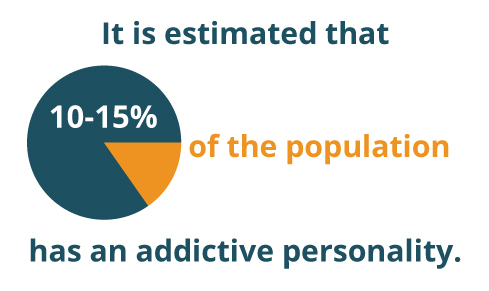- Abuse & The Abuser
- Achievement
- Activity, Fitness & Sport
- Aging & Maturity
- Altruism & Kindness
- Atrocities, Racism & Inequality
- Challenges & Pitfalls
- Choices & Decisions
- Communication Skills
- Crime & Punishment
- Dangerous Situations
- Dealing with Addictions
- Debatable Issues & Moral Questions
- Determination & Achievement
- Diet & Nutrition
- Employment & Career
- Ethical dilemmas
- Experience & Adventure
- Faith, Something to Believe in
- Fears & Phobias
- Friends & Acquaintances
- Habits. Good & Bad
- Honour & Respect
- Human Nature
- Image & Uniqueness
- Immediate Family Relations
- Influence & Negotiation
- Interdependence & Independence
- Life's Big Questions
- Love, Dating & Marriage
- Manners & Etiquette
- Money & Finances
- Moods & Emotions
- Other Beneficial Approaches
- Other Relationships
- Overall health
- Passions & Strengths
- Peace & Forgiveness
- Personal Change
- Personal Development
- Politics & Governance
- Positive & Negative Attitudes
- Rights & Freedom
- Self Harm & Self Sabotage
- Sexual Preferences
- Sexual Relations
- Sins
- Thanks & Gratitude
- The Legacy We Leave
- The Search for Happiness
- Time. Past, present & Future
- Today's World, Projecting Tomorrow
- Truth & Character
- Unattractive Qualities
- Wisdom & Knowledge
Health & Wellness Wednesdays
Traits of An Addictive Personality
Addictive personalities are an interesting thing. Any and everyone can be affected by addiction, but it's certainly true that certain people seem to be more susceptible to it.
An "addictive personality" doesn't mean anything negative about who you are as a person -- it might just mean you need to be extra careful about what you experiment with. Do you have a hard time setting boundaries? Over time, habits, etc? If you find something you love, does it consume you?
You might see this as being a problem with something like video games or caffeine. While those are still not easy addictions to deal with, consider how someone who's easily hooked on those things might respond to other highly addictive substances or behaviours.
Being adventurous can be another trait of an addictive personality. This is certainly not a bad thing to be -- in fact, it's encouraged! But sometimes risk taking without fully considering a situation's consequences can have disastrous results.
Your personality, genetics, and traits don't necessarily dictate your actions -- but paying attention to areas of growth is an important step. Know yourself! Take care of yourself, and protect yourself.
Interesting Fact #1
People whose parents have struggled with addiction are believed to be born with a genetic predisposition towards addictive personalities.
Interesting Fact #2
Addictive personalities require constant stimulation.
Interesting Fact #3
Addictions are generally motivated by pleasure, or lack thereof, at least initially.
Quote of the day
Every form of addiction is bad, no matter whether the narcotic be alcohol or morphine or idealism.
Article of the day - 6 Traits of an Addictive Personality
An addictive personality is a set of personality traits that make an individual more prone to develop addictions to drugs, alcohol or other habit-forming behaviors. Know someone who might have one?
Here are a couple of red flags to look for:
- Lying Addiction is all about lying. First, the user lies to himself about having an addiction, then he must lie to everyone else around him. The more dependent he becomes on drugs or alcohol, the more likely he’s going to feel the need to lie. After a while, stretching the truth becomes like second nature; he’s trapped in denial and deep within the cycle of addiction.
- ManipulationWhen a person depends on drugs or alcohol, they will stop at nothing to manipulate those who love them most. They make promises they never keep, profess love they don’t have and come up with gut-wrenching, emotional stories to get money – all in the name of feeding an addiction.
- Impulsive BehaviorImpulsive behavior means acting without thinking about the impact of your actions, which can include anything from drunk driving to stealing something from a family member. Though everyone has faulty judgment at times, a person who regularly engages in this type of behavior is exhibiting impulsive behavior that can be indicative of an addictive personality.
- Criminal BehaviorOnce the money runs out, a person who’s using will do anything and everything to keep his supply of drugs and alcohol open. Often times, he resorts to committing crimes to fill that need. At this point, drugs have such a powerful hold over the person, it can completely alter his perception and reason.
- Blame-ShiftingNot being accountable or responsible for the outcome is a classic trait of someone with an addictive personality. This is a problem because, by blaming others, he is blind in seeing his own flaws and how they’ve contributed to the problem. This will cause him to become stuck once an addiction has developed, thinking that everyone else has the problem – not him.
- Sensation SeekingA person who is sensation-seeking is one who is constantly seeking out new experiences and new sources of adrenaline rushes. This constant desire for newness can lead to experimentation of drugs and alcohol, which opens the door later to substance abuse.
Awareness is the Answer
If these traits sound familiar, you or someone you know may be more likely to develop habits that negatively impact daily life. Awareness is key, so if you feel yourself succumbing to temptation more regularly, don’t be afraid to reach out for help.
Question of the day - Do you find setting time boundaries easy?
Dealing with Addictions
Do you find setting time boundaries easy?











